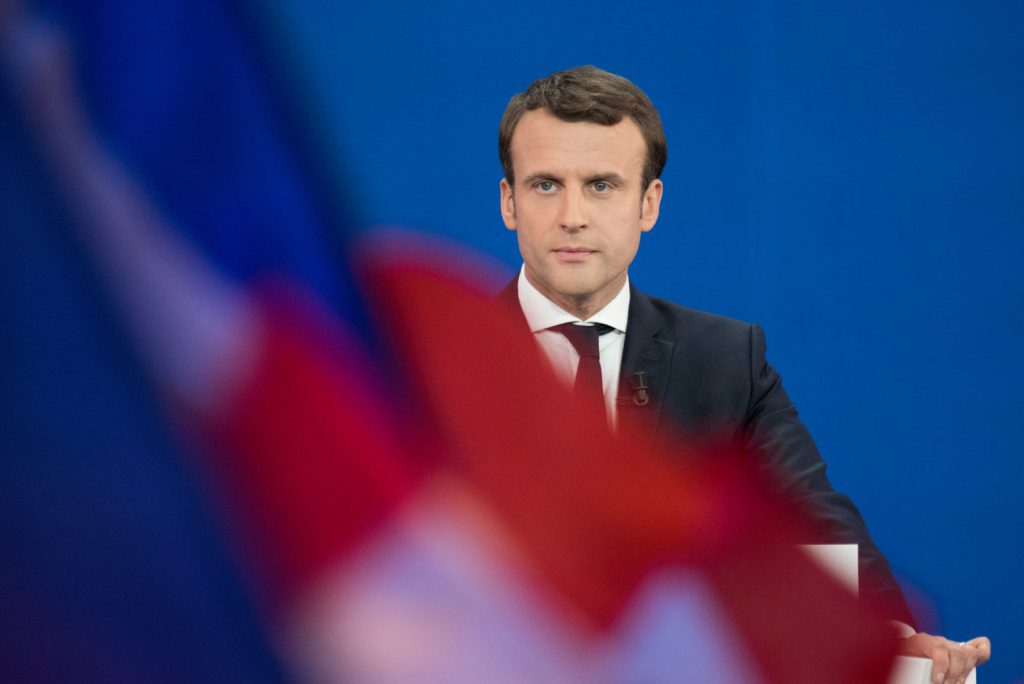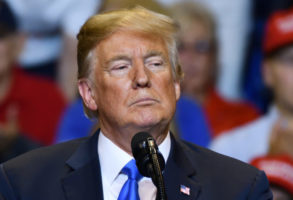
Published January 19, 2018
Foreigners are fascinated by French President Emmanuel Macron. And why shouldn’t they be? He’s the youngest-ever president of the French Republic, elected with no party and no previous electoral experience, a virtual nobody just two years before he leaped to the forefront of the French political scene. Of course people are curious.
But there’s another reason my non-French friends bombard me with questions about my president. Like myself, most of them have advanced degrees and upper-middle-class backgrounds. This sort of socioeconomic status correlates strongly with affection for Macron.
His views mirror those held by most of this “elite” class. He thinks the left-right divide should be transcended. He doesn’t care about outworn ideologies, but about solutions that work, wherever they come from. He thinks startups are cool and the economy should be generally entrepreneurship-friendly, but he also wants some sort of welfare state. He’s got no problem whatsoever with gay marriage. He believes immigration is desirable for both economic and moral reasons.
But he doesn’t just think like an elite. He embodies many elites’ idealized lifestyle. He did very well academically (but not too well, having failed the entrance exam to the ultra-prestigious ENS civil service school), in a way that suggests some depth of mind (master’s degree in philosophy), but also practical success (ENS’s graduates run the country’s public and private sectors), because come on, how many people actually want to be philosophers? He did very well in investment banking, but not too well. His marriage to a much older woman who was once his drama teacher is socially transgressive to just the right degree. He’s handsome, but not too handsome.
In other words, Emmanuel Macron is the Donald Trump of the elite class. He’s not just their representative—he’s their avatar. Trump’s die-hard followers love him with such devotion not just because they like what he says, but because his image is that of the guy they wish they were or could be. It’s the same thing with Macron and his own elite base. And this is the stuff out of which Messianic movements are made.
The comparison is not perfect—for one thing, I have no problem with the idea of Macron having his finger over my country’s nuke button, while the idea of Trump with his finger over the American nuke button gives me cold sweats. But it gets at what I wish every American understood about Macron: His brand of pragmatic centrist politics is really just class-interest-based politics.
As Christophe Guilluy, a sociologist and leading analyst of contemporary society, pointed out, Macron’s supporters can be boiled down to one word: They are the “haves.” They are the people who rode the waves of change that have inundated the West over the past few decades—globalization, technological transformation—to great success. Education is the best predictor of voting for Macron, which makes sense, since it correlates not just with financial capital but also with cultural capital. Another predictor is age, although in a perhaps-unexpected way: Macron is highly popular with the elderly, whose pensions protect them from the liberalizing reforms Macron campaigned on, and very unpopular with the young, who disproportionately come out the losers in France’s contemporary economy.
This explains why, after having used the oddities of the French electoral system to get elected as an alternative to worse candidates, Macron is extremely unpopular. Non-elite French people smell exactly what the elites smell, and their reaction is equally predictable. Now, Macron supporters don’t believe that they support him for the crass reason that he will benefit their class at the expense of the rest of the country; instead, they just believe that what’s good for them is good for the country. Call it “trickle-down economics.” But, of course, nobody believes they support a certain policy simply because it’s good for them. Building the U.S.-Mexico border wall is cast as being about American identity, something all Americans can identify with, not about a protectionist barrier for the wages of Trump supporters at the expense of the well-heeled beneficiaries of low-wage immigration.
There’s nothing uniquely bad about this: Groups defending their interests just is what politics is. Democratic politics endures because it’s the least-bad mechanism we’ve come up with for handling precisely that.
But there’s a flip-side to Macron’s class-based politics: If you decide to replace the old left-right divide with the divide between the haves and the have-nots, haven’t you created a monster of a different sort?
The Macron tsunami has hit, and the traditional parties of the French left and right are deeply wounded and struggling to survive. But two people are doing fine: Jean-Luc Mélenchon, France’s leading far-left firebrand, and the infamous Marine Le Pen, France’s hard-right populist leader. In fact, it’s in Macron’s political interest for them to do well, to squeeze the last pangs of breath out of the traditional parties that might supplant his new centrist party. The better Mélenchon and Le Pen do, the worse the traditional parties do, and the more Macron looks like the only alternative to candidates the majority of French people still reject.
This might work to get him re-elected. But here’s what many don’t understand about Macron’s attempt to steer French politics away from the left-right divide we invented: If it is successful, it will mean that the opposition party (whatever it looks like, whoever its leader is) will be the anti-elite party par excellence. Put Donald Trump, Nigel Farage, Jeremy Corbyn, Jean-Luc Mélenchon, and Marine Le Pen in a bottle, shake vigorously—and, in a Macronified politics, whatever comes out is almost guaranteed to run the country. Not today. Not tomorrow. But, if Macron’s bet is successful, at some point.
Pascal-Emmanuel Gobry is a fellow at the Ethics and Public Policy Center.




